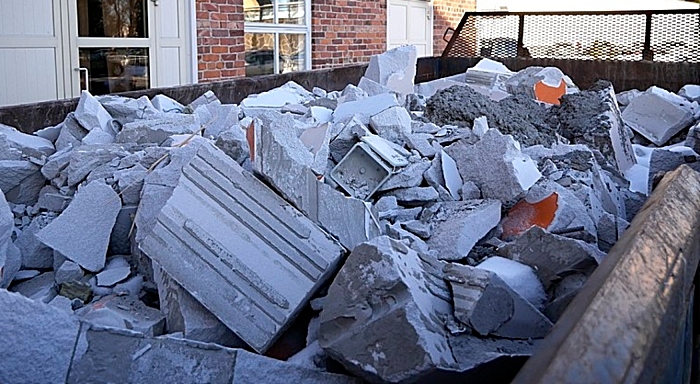
The amount of rubble waste being dealt with at Cheshire East tips has fallen by 80% since a new charge was introduced, writes Stephen Topping.
Cheshire East Council launched a charge of £3.50 per bag for construction waste in January as part of wider changes to its recycling centres.
Tips in the borough used to handle an average of 800 tonnes of rubble each month – but this has now fallen to 120 tonnes a month.
Cheshire East Council also believes the charge has led to other benefits.
A report presented to councillors this week said: “The proposal to charge for rubble has delivered significant positive change to the household waste recycling centres.
“As anticipated by our specialists, the amount of material that is managed through this waste stream has dropped drastically, by more than 80%.
“There was concern that the incidents of fly-tipping would increase greatly as a result of this charge, this has not been the case in the first quarters of operation.
“The anticipated decrease in rubble tonnages has delivered the added benefit of there being fewer users of the site and therefore easier movement around them.”
Figures revealed to councillors show that in the first five months since the charge was introduced, CEC has dealt with between 200 and 250 incidents of fly-tipping each month.
That remains consistent with figures for most of 2017-18, following a peak of more than 300 incidents per month in April and May 2017.
The rubble charge was introduced alongside the closure of Arclid’s waste recycling centre and the reduction of opening hours at tips across Cheshire East.
Ralph Kemp, corporate manager for commissioning of waste and environmental services at Cheshire East Council, told the environment and regeneration overview and scrutiny committee that those changes have not increased fly-tipping as originally feared.
But he insisted that the council could not be complacent about tackling the problem.
“I don’t think any of our levels of fly-tipping are necessarily acceptable,” Mr Kemp said.
“They are comparable with other authorities but we are obviously working to try and reduce fly-tipping across the board.”
Mr Kemp added that most fly-tipping incidents involve household waste rather than rubble, and that a review will be conducted later in 2018-19 to check construction waste is not being dumped in regular wheelie bins for household waste.
(Pic by Santeri Viinamäki, creative commons licence)


















How can we believe figures produced by these clowns? I wouldn’t believe them if they told me that it was going to be dark tonight!
Most of the rubble has probably ended up in the black bins!
The creation of rubble hasn’t suddenly dropped by 80%, its still somewhere, except now its not going to where it should be going to be properly disposed of.
Or maybe people are getting skips to dispose of it.
The amount of rubble produced has not fallen, just the amount taken to CE tips. The waste will be appearing in a quite country lane or lay by soon. How much then will it cost to have it removed? If the waste is dumped on private land, I imagine it’s the land owner that has to pay.
I agree with measures to reduce household waste, but this measure is naive at best.
So where is it?? Dumped down lanes, waste ground or still piling up in back gardens. By making it difficult and expensive to officially dispose of waste from probably small DIY projects doesn’t solve the problem it moves it elsewhere. I for one will not be applauding you on this achievement, it smacks more of making money!!